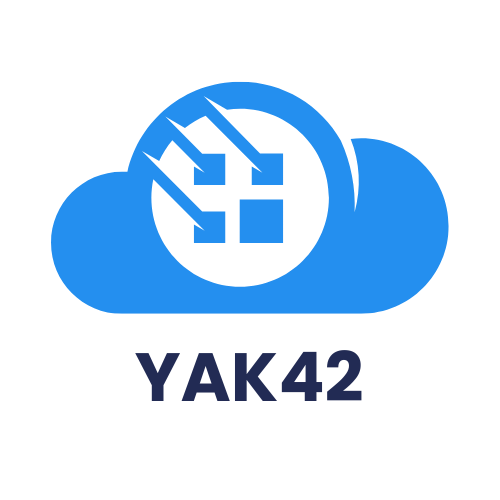Table of Contents
ToggleIn today’s digital landscape, businesses are constantly seeking ways to enhance security, scalability, and control over their data. The private cloud emerges as a compelling solution, offering organizations a dedicated environment tailored to their specific needs. Unlike public clouds, private clouds provide exclusive access to resources, ensuring that sensitive information remains protected while still benefiting from cloud technology.
As companies navigate the complexities of digital transformation, the private cloud stands out for its ability to deliver both flexibility and compliance. With customizable infrastructure and robust security features, it empowers businesses to optimize their operations without sacrificing data integrity. Understanding the nuances of private cloud solutions is essential for organizations looking to harness the full potential of cloud computing.
Overview of Private Cloud
Private cloud solutions provide organizations with a dedicated computing environment that aligns with their unique requirements. These systems enhance security, allow for greater control over data, and facilitate scalability.
Definition and Key Characteristics
A private cloud refers to cloud computing resources used exclusively by one organization. Key characteristics include:
- Exclusivity: Resources dedicated to a single organization, ensuring enhanced security and compliance.
- Customization: Infrastructure tailored to meet specific needs, enabling companies to optimize performance and functionality.
- Control: Full management capabilities over applications, data, and security protocols.
- Scalability: Capacity to adjust resources as needed, allowing for efficient scaling of IT resources in response to business demands.
Benefits of Adopting a Private Cloud
- Enhanced Security: Improved data protection reduces risk of breaches with dedicated firewalls and security measures.
- Regulatory Compliance: Private clouds facilitate adherence to stringent regulatory requirements, critical for industries like finance and healthcare.
- Increased Performance: Exclusive access to resources minimizes latency and maximizes application performance.
- Cost Efficiency: Long-term savings are possible through optimized resource allocation and potential reductions in hardware costs.
- Business Continuity: Reliable backup solutions and disaster recovery options enhance operational resilience in the face of disruptions.
Types of Private Cloud

Private clouds exist primarily in two forms: on-premises and hosted, each offering unique benefits and deployment methods tailored to the needs of organizations.
On-Premises Private Cloud
On-premises private clouds reside within an organization’s data center, utilizing its hardware and infrastructure. Organizations maintain complete control over their resources, ensuring compliance with stringent regulatory requirements. On-premises solutions provide high customization flexibility, allowing companies to tailor configurations for specific workloads. Security remains a high priority, as critical data does not traverse external networks. This setup enhances performance by minimizing latency and maximizing resource usage efficiency.
Hosted Private Cloud
Hosted private clouds operate off-site, leveraging a third-party service provider’s infrastructure while still allocating resources solely to a single organization. Organizations enjoy benefits like reduced capital expenditure, as they avoid the costs associated with building and maintaining physical data centers. Hosted solutions offer scalability, allowing resources to be adjusted quickly in response to changing demands. Security remains robust, with the provider implementing specialized protocols to safeguard sensitive data. This model combines the advantages of capital efficiency with the expertise of dedicated cloud professionals.
Private Cloud Deployment Models
Private cloud deployment models cater to distinct operational needs and preferences, emphasizing flexibility and control over IT resources. The two principal models include Virtual Private Cloud and Managed Private Cloud.
Virtual Private Cloud
Virtual Private Cloud (VPC) involves creating isolated environments within a shared public cloud infrastructure. VPCs offer the advantages of cloud economics while maintaining a level of data security typically associated with private clouds. Organizations utilize VPCs to achieve scalability and resource efficiency. Security controls, such as virtual firewalls and permissions, ensure that sensitive data remains protected. VPCs suit businesses seeking cost-effective solutions without compromising security. A notable example is Amazon Web Services (AWS) VPC, which allows organizations to customize network configurations and control access.
Managed Private Cloud
Managed Private Cloud refers to a private cloud environment operated by a third-party service provider. This model allows organizations to leverage external expertise while maintaining privacy and compliance. Service providers manage hardware, software, and network resources, enabling businesses to focus on core operations. Managed Private Clouds enhance resource availability and performance through guaranteed service levels and technical support. These services are particularly valuable for organizations with limited technical capabilities. An example includes IBM’s Managed Private Cloud service, offering tailored solutions for specific industry needs and compliance requirements.
Key Technologies Used in Private Cloud
Private cloud infrastructures utilize various technologies to ensure security, scalability, and performance. Key technologies include virtualization, networking, and storage solutions.
Virtualization
Virtualization software facilitates the creation of virtual machines (VMs) that enable multiple operating systems to run on a single physical server. This technology maximizes resource utilization and reduces hardware costs by allowing organizations to deploy applications and services efficiently. Popular virtualization platforms like VMware, Microsoft Hyper-V, and KVM provide robust features such as live migration, automated load balancing, and snapshot capabilities. These features enhance operational flexibility and enable quick recovery from failures, making virtualization a cornerstone of private cloud environments.
Networking and Storage Solutions
Networking technologies ensure seamless communication within private cloud environments. Solutions like software-defined networking (SDN) enable dynamic network management, allowing organizations to optimize traffic flow and enhance security measures. Additionally, network virtualization facilitates the provision of isolated networks, which can enhance performance and security for different applications.
Storage solutions, including storage area networks (SAN) and network-attached storage (NAS), provide scalable options for data management. Technologies such as deduplication, compression, and tiered storage improve storage efficiency and performance. Moreover, integrating solid-state drives (SSDs) in storage arrays enhances data access speeds, resulting in improved application performance. Together, these networking and storage solutions contribute to the overall effectiveness of private cloud deployments, offering organizations flexible and reliable data management.
Challenges and Considerations
Organizations face specific challenges when implementing private cloud solutions, which require careful consideration to ensure optimal performance and security.
Security Concerns
Security in a private cloud environment is paramount yet complex. Organizations must manage risks such as unauthorized access and data breaches while ensuring compliance with regulations. Implementing strong firewalls and encryption can mitigate some risks. Regular security audits and vulnerability assessments should occur to identify potential weaknesses. Adopting multi-factor authentication enhances user access security, while Intrusion Detection Systems (IDS) provide real-time threat monitoring, ensuring proactive measures against attacks.
Cost Management
Cost management poses another challenge for organizations utilizing private clouds. While private clouds can optimize resource allocation and workload efficiency, initial setup costs may be substantial. Investments in hardware, software, and knowledgeable personnel can strain budgets. Organizations should conduct a comprehensive cost-benefit analysis to gauge long-term financial implications accurately. Furthermore, ongoing maintenance and potential expansion needs require consideration to effectively budget for cloud expenditures over time. Emphasizing cost transparency and utilizing cloud cost management tools can assist in controlling these expenses and maximizing return on investment.
Private cloud solutions are becoming essential for organizations seeking enhanced security and control over their data. By offering a dedicated environment tailored to specific business needs, private clouds empower companies to navigate the complexities of digital transformation with confidence.
The flexibility and compliance advantages they provide are crucial in today’s regulatory landscape. As organizations weigh their options, understanding the unique benefits of private cloud deployments can drive strategic decisions that optimize performance and cost efficiency.
With the right approach to implementation and security management, private clouds can significantly enhance an organization’s operational resilience and agility. Embracing this technology can pave the way for sustainable growth and innovation in an increasingly competitive market.







